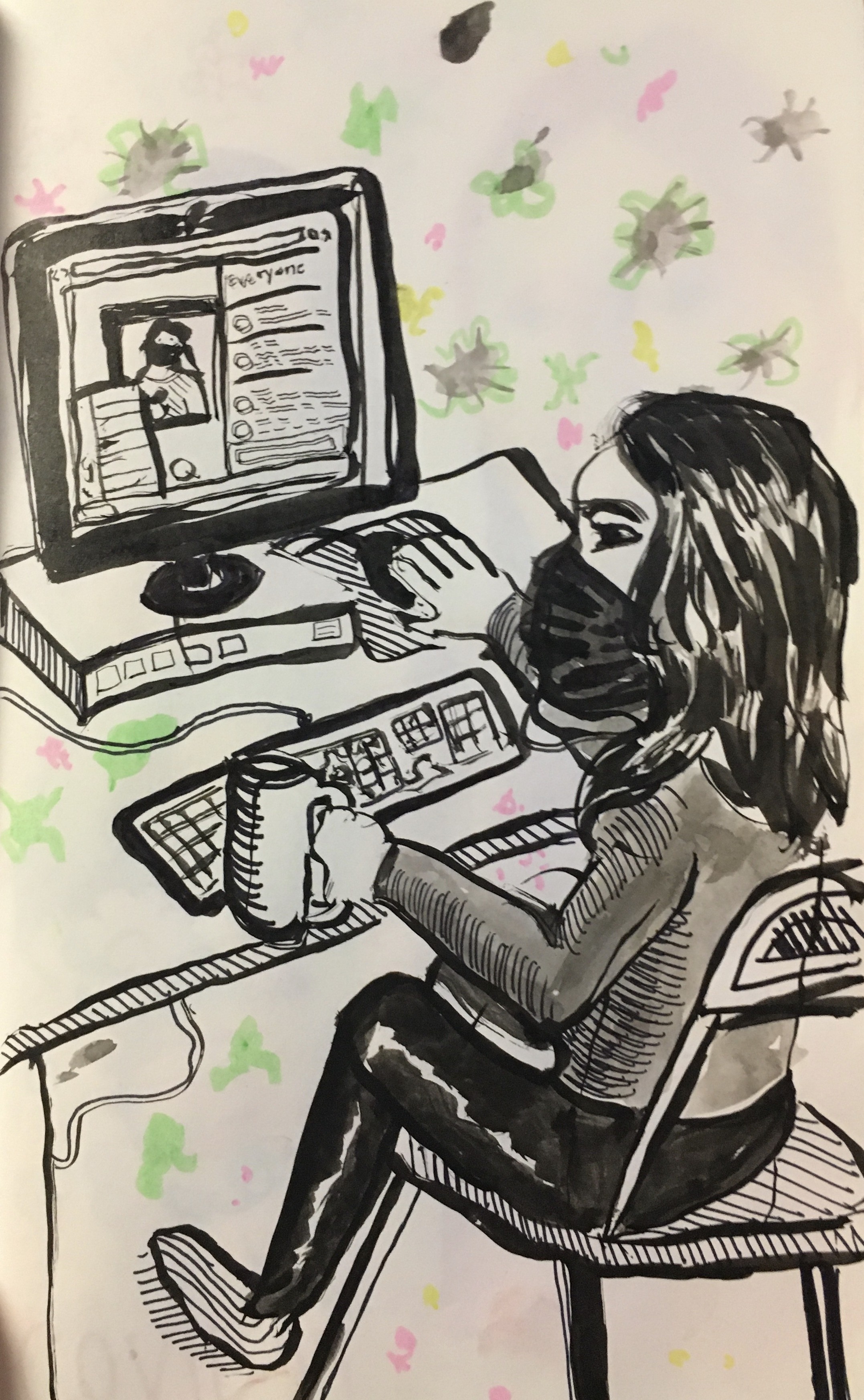Intimacy
I wouldn't consider myself an intimate person, but if you equate intimacy with physical proximity, then I've been intimate with almost everyone I've encountered in the streets of New York City. The subways would be packed like sardine cans with sweaty bodies lining the carts, and I often found myself inches away from someone's back in an effort to keep myself upright as the train traversed the different neighborhoods. However, with Covid-19 influencing our sociability, I was forced to reconsider what is meant by "intimacy." The days following Covid-19 being declared a pandemic, there was a dramatic shift. My college, like many public institutions, shut down, and everyone was propelled into a perpetual state of living in their homes and being nowhere else. Going outside felt like entering a contaminated bubble where you were vulnerable without protection, and whenever I got back from the outside, I washed my hands until they were cracking in dryness. I heard the words “social distancing” more times in one week than I had heard in my lifetime. What's more, commercials that normalized the current state of affairs saturated the television with the rhetoric “we are all in this together” while lamenting “uncertain” times. A barrier formed between my body and the world, and after a week of recalibration, I resumed my college courses under “distance learning.” Somehow, the shift from in-class learning to online increased the superficial intimacy of seeing enough of the person. Before my college was moved online, I reveled in my privacy. I sat in the front of all my classes, and despite the filled lecture halls, I only ever talked to the people who sat directly next to me. However, on the first day of class on Google Hangouts, the professor suggested we compile our emails, phone numbers, and other contact information to create a list for the class. When she suggested this, I thought “What a breach of privacy!” My number was for close friends only, but suddenly, everyone in the class had access to my information. Additionally, I could see everything with a webcam. Instead of just having to look at the board in a classroom, I was looking at the faces of everyone who sat behind me, faces I had no idea existed until that moment. I could see what books lined the shelves of my classmates, what their kitchens looked like, and whether they had pets. At one point, my English professor conducted class with her pug on her lap, and I could hear the sound of the dog breathing into her microphone. And just as I felt I knew a lot more about people, I felt they knew about me. The option to keep your webcam on was a personal one, and some of my professors didn't require us to show our faces as long as we kept our microphones on. In an act of maintaining what little regularity I had in my quarantined schedule, I preferred to keep my webcam on and show my face. I'd stare into the camera and make sure my little sliver of room- the visible portion of my white dresser and green wall- was presentable. Meanwhile, the floor was littered with clutter. One morning, as I logged into my class, a boy who I had never spoken to texted me out of the blue. He asked, “How are you awake?” and I realized he had been looking at my face. I shut off my camera and didn't respond. At the end of each day, I talked with my best friend on my phone. She, like me, had her classes moved online. We laughed about awkward camera angles, pointed up people's noses, and the technical malfunctions that lead to humorous miscommunications. I told her how I now knew absurd details about people's domestic lives like what kind of mug my professor sips her coffee from and the singing voices of my classmate's six year old son. However, the conversation always circled to the grim. It's funny; you learn all these new facts about people under the most unlikely of circumstances. Without seeking it, I learned out about the intimate details of dramatically shifted lives. The girl who lent me a pencil was currently taking care of kids who were no longer attending school. The boy whose English paper I helped edit had to go back to Egypt indefinitely. My professor, who had maintained a strong and upbeat attitude during troubled times, received word that her sibling in South Korea tested positive for Covid-19. When I turn off my phone for the night, I see only myself in the reflection on the black screen, and even though I have access to just about anyone with a phone number or social media profile, I feel an isolation that charges itself into my little bedroom where I sit all alone. It's true we are all in this together, but it is hard not to think that the only intimacy brought on by this pandemic is the shared uncertainty of the unknown. Yet, if intimacy is determined only by physical proximity, then we forfeit the empathy needed to thrive in uncertainty, and maybe it's time to redefine what intimacy really means in a time of social isolation.








